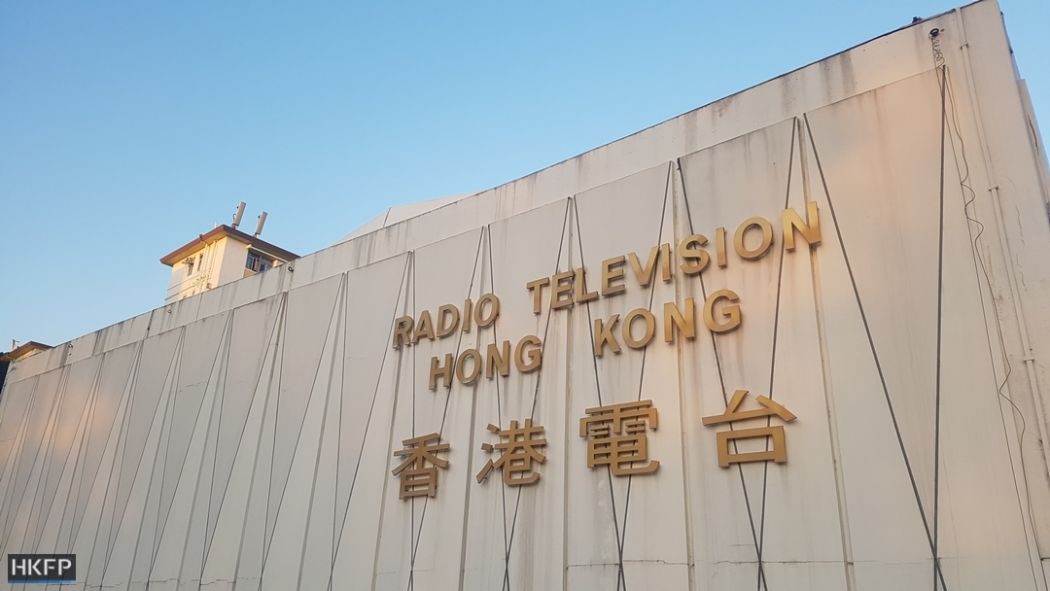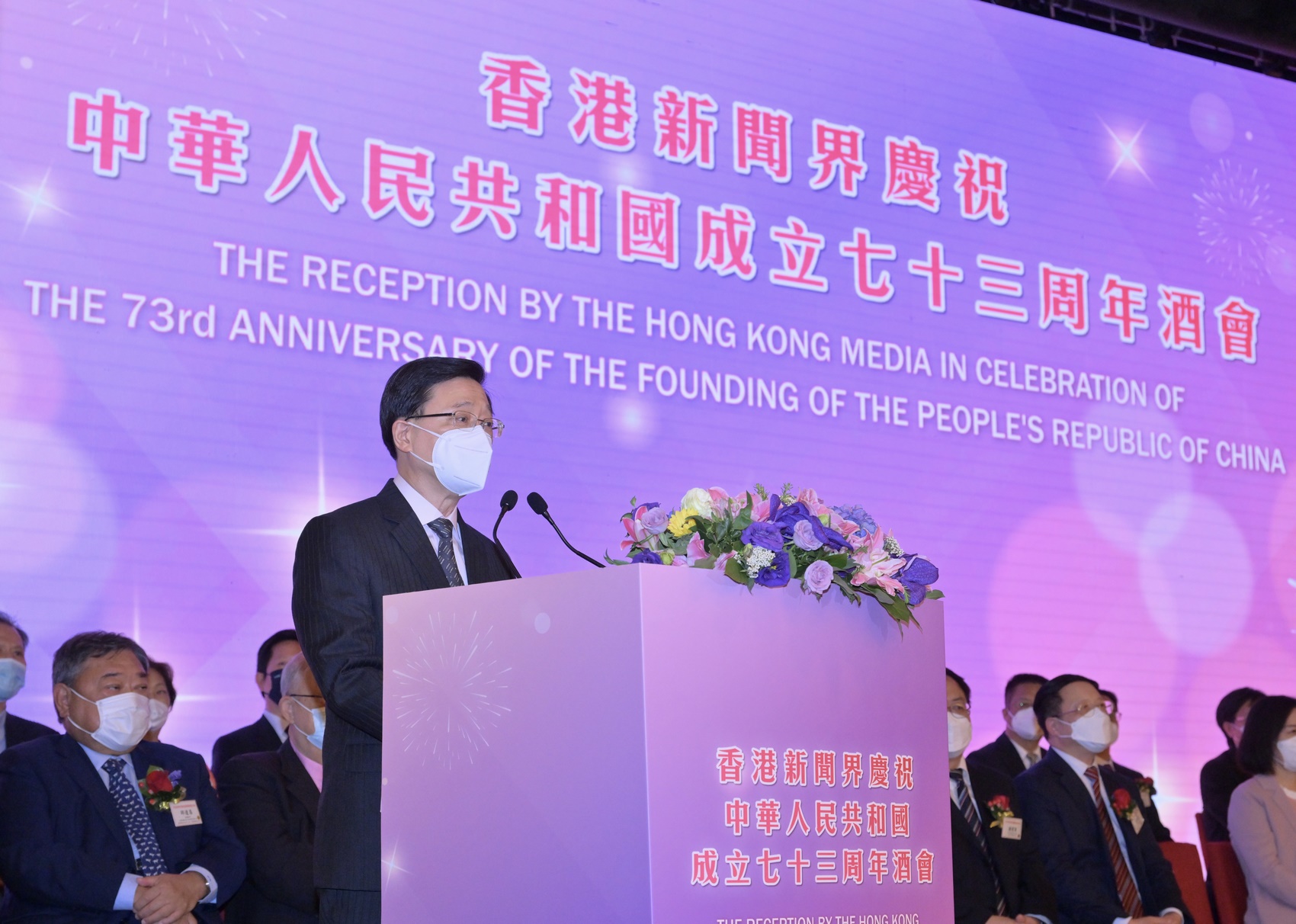Issue:
December 2022
Hong Kong’s foreign press club is feeling the heat from Beijing’s crackdown on media freedom
In June 2020, Hong Kong’s longest-running political TV satire was unceremoniously axed. For 31 years, Headliner had lampooned the powerful, the corrupt and the stupid on RTHK, Hong Kong’s public service broadcaster, but it finally tripped a regulatory landmine by mocking the police. A short sketch aired a few months earlier jokingly implied that cops were getting better protective gear than medical workers during the coronavirus pandemic. Outrage ensued, followed by a damning verdict by the Communications Authority which said the show had “denigrated and insulted” the police.

https://hongkongfp.com/2020/06/21/curtain-falls-on-hong-kongs-oldest-satirical-tv-show/
The cancellation of Headliner, and the takeover of RTHK by pro-Beijing apparatchiks, may help explain why trust in the once blue-chip broadcaster has plummeted over the last few years. A survey published in August by the Chinese University of Hong Kong found that the broadcaster’s credibility had slid from second to fifth, just above TVB, which is accused of pro-government bias. The survey said that public faith in Hong Kong’s once vibrant media has “fallen to its lowest level in two decades”.
In June, FactWire, a crowdfunded investigative news agency, became the latest Hong Kong media firm to fold, another casualty of the national security law imposed by Beijing in 2020. The law is widely blamed for the closures in 2021 of the anti-Beijing Apple Daily, Hong Kong’s largest-selling newspaper, and online website Stand, which scrubbed all its old articles. Awarding Hong Kong its worst-ever ranking of 148 (a drop of 70 places in a single year), media watchdog Reporters Without Borders also notes in its latest report that 11 journalists currently languish in Hong Kong prisons.
All of this is bad news for the Foreign Correspondents' Club (FCC), Hong Kong, the sister organization of the FCCJ. Membership of the club, which was founded in 1943, has reportedly fallen below 2,000 for the first time in decades. Sources say the relentless dismantling of the region’s civil society, coupled with draconian coronavirus rules, are driving media workers out of Asia’s World City, Hong Kong’s self-described title. The New York Times sent the first smoke signals to the expat journalistic community when it began moving its staff to Seoul and Tokyo in 2020. Dozens of journalists have reportedly left The South China Morning Post in the last two years.
Not surprisingly, the FCC has taken increasingly heavy flak from Beijing since the national security law kicked in. China’s foreign ministry accused the FCC in September of “ignoring facts” and taking “every opportunity” to attack the Hong Kong authorities and support “anti-China forces”. In the typically fulsome language of government press releases, the ministry said these forces were “meddling with the rule of law in the SAR and disrupting Hong Kong in the name of press freedom,” before concluding: “Their tricks will bite the dust.”
The tension between the FCC and Beijing has crystalized around the renewal of the club’s seven-year lease in January 2023. There is speculation that the government is considering kicking the FCC out of its premises in central Hong Kong. Club president Keith Richburg is crossing his fingers. “We’ve asked the Hong Kong government to be allowed to stay and I’m cautiously optimistic that we’ll have a favorable outcome.”
Beijing would prefer that the club remains, “but they also want us to shut up,” said one source, who added that Beijing’s criticisms of the FCC – accusing it of aligning with anti-government forces - have become more “screwball”.
This is not the first time the Hong Kong government has bared its teeth to the FCC, which reportedly pays HK$550,000 in monthly rent for its premises. In 2018, the government pointedly revealed that the region’s then chief-executive, Leung Chun-ying, had authorized the last lease three years previously, after the club invited Andy Chan, a pro-independence activist, to speak – in defiance of the government. Leung denied he was threatening the FCC with this information, but added that “many would want the club to explain why the government should not allow others to bid for its premises”.
The national security law, however, has tipped the balance in this decades-long tug-of-war over press freedom. As one Hong Kong-based journalist told the Number 1 Shimbun this year, the provisions of the law are so vague and insidious that few feel safe. “You start to question yourself whether that story you’re researching is still doable in light of the NSL,” said the journalist, who requested anonymity. “They can slice and dice that law in whatever way they wish, and if you cross the line, you can be arrested and denied bail.”
The FCC appears to be erring on the side of caution. In April this year, it cancelled its Human Rights Press Awards, citing legal “red lines”. Stand News had won a slew of prizes but at least two of its employees were facing sedition charges under the new law, which potentially put the cub in the legal firing line. From next year, the event will be hosted by Arizona State University’s journalism school, thousands of miles away. Richburg said the cancellation of the awards (which reportedly prompted eight members of its press freedom committee to quit) was “in the best interests” of the club and its staff.
Amid the fading of the light, FCC members might take some grim comic pleasure from the surreal bon mots from the authorities. Against all the evidence, Hong Kong’s former Chief Executive, Carrie Lam, repeatedly said she did “not seek to crackdown on press freedom” and that her government was the “worst victim” of fake news. In September, her successor, John Lee, urged “patriotic” journalists to deliver the correct message about Hong Kong to the world.

“Every journalist sitting here loves the motherland and Hong Kong, and hopes to push for societal progression and the improvement of people’s lives through objective and fair reporting and commentary,” he said at a speech ahead of National Day. “Journalists’ responsibility is to report the truth in the spirit of maintaining objectivity, fairness, and impartiality.”
David McNeill is professor of communications and English at University of the Sacred Heart, Tokyo, and co-chair of the FCCJ’s Professional Activities Committee. He was previously a correspondent for The Independent, The Economist and The Chronicle of Higher Education.

